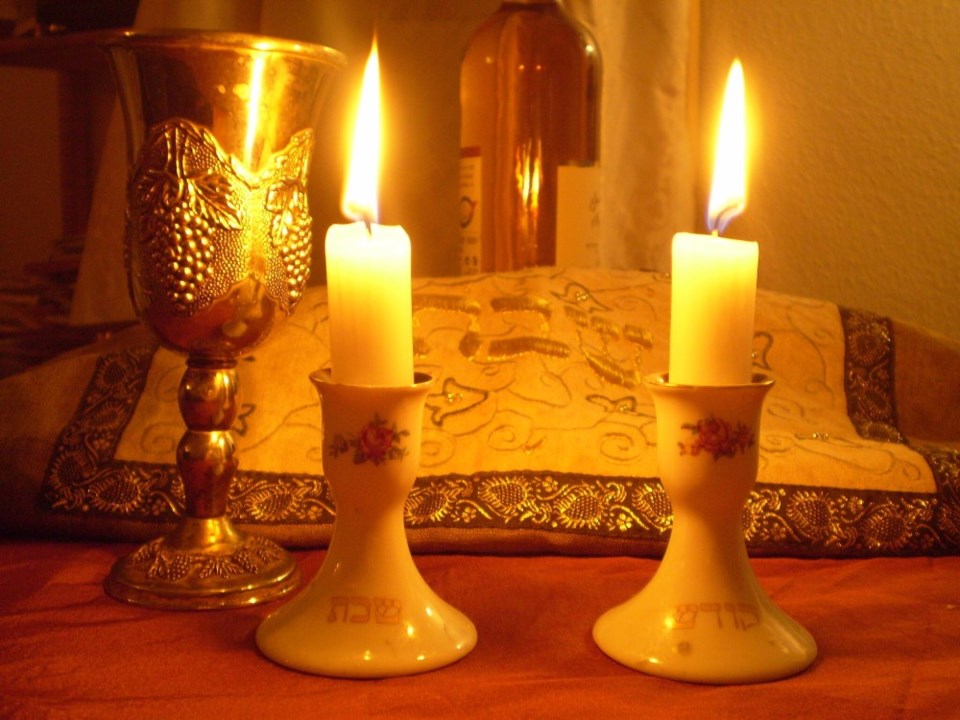This year, the Jewish New Year, Rosh Hashana, occurred from Wednesday evening, October 2 to Friday evening, October 4. It was immediately followed by Shabbat, the Jewish Sabbath, which occurs every week from sundown Friday to sundown Saturday. If you’re reading this article on the day it is published, it will be Shabbat and Yom Kippur, the day of atonement.
After all that has happened and is still happening since October 7, 2023, you might think that this year Jews around the world had a very sad Rosh Hashana and Yom Kippur, rather than a time of celebration, reflection and renewal with family, friends, and community. And you would be correct. But you would also be incorrect. As a people, we are used to experiencing both gut-wrenching heartbreak and soul-stirring joy simultaneously. In fact, the ability to acknowledge and experience both is built into our customs, ceremonies, rituals, and traditions.
For sadness amidst joy, we have the custom at a Jewish wedding of breaking a glass at the end of the ceremony. The broken glass reminds us that even during our time of joy we remember with sadness the destruction of the Temple in Jerusalem over 2000 years ago. We also place sadness amidst joy during Passover when we celebrate our freedom from slavery in Egypt. We do this by spilling drops of wine sixteen times during our service. This spilled wine acknowledges the Egyptians who perished in the plagues and the ones who drowned in the sea—their deaths diminish our joy.
While I find it easier to temper joy with sadness, I deeply appreciate the Jewish customs and rituals that require us to experience joy amidst sadness. Yes, believe it or not, being happy and joyful is actually an obligation for us and here’s why I appreciate it. My Mum of blessed memory passed away in June, two days after her 91st birthday. At the funeral, my siblings and I followed the custom of each tearing a garment we would wear for the next seven days (shiva). We also followed another custom of sitting in very low chairs, except on Shabbat. On Shabbat we were required to remove our torn garments, wear our good clothes, sit in regular chairs, and focus on the joy of the Sabbath.
My Mum’s funeral was on a Friday afternoon and Shabbat started that evening. I remember thinking it would be impossible for us to be happy, but as we prepared a festive meal, lit the Shabbat candles, said blessings over the wine and bread, and sat down to eat together, we stopped focusing on our grief and accepted that for 25 hours we would not be mourning. I played games with my great-nieces and realized what a blessing it was to enjoy that time with them without feeling guilty for being happy. After Shabbat we put on our torn garments and sat in low chairs until the end of the seven days of shiva.
I now have my Mum’s Shabbat candlesticks. They are a constant reminder to me of the importance of honouring the Sabbath and festivals. The customs we follow remind us of sadness in times of joy; they allow us to remain humble and grateful for all that is good in the world. The custom of celebrating Shabbat and festivals with joy even during times of grief allows us to be heartbroken yet at the same time lifts our spirits and gives us strength to be present for our family, friends, and communities. If you ask us this year if we are happy or sad, the answer is yes.
Fiona Prince is a coach and teacher who provides communication and writing skills through her own company and Royal Roads Professional & Continuing Studies. She is the volunteer Jewish Spiritual Care Provider at UVic and belongs to Chabad Family Shul in Victoria where she volunteers teaching children and adults how to read Hebrew. Fiona acknowledges that her home and office are located on the traditional territories of the W̱SÁNEĆ and Lkwungen-speaking peoples, on whose traditional territories, she is thankful to live, learn, play, and do her work.
You can read more articles on our intrfaith blog, Spiritually Speaking at https://www.timescolonist.com/blogs/spiritually-speaking
* This article was published in the print edition of the Times Colonist on Saturday, October 12th 2024



